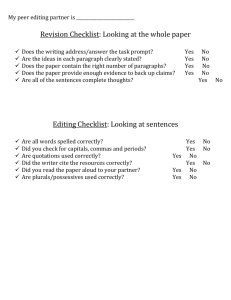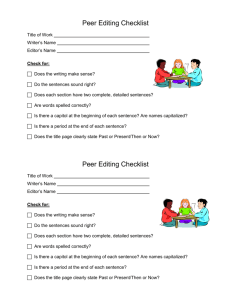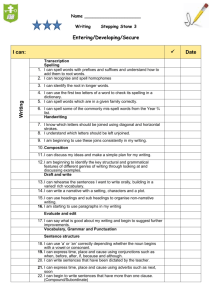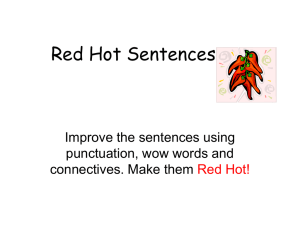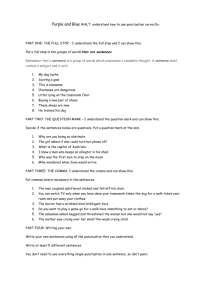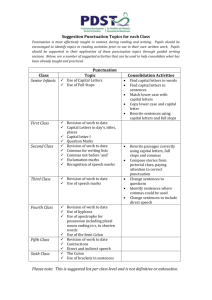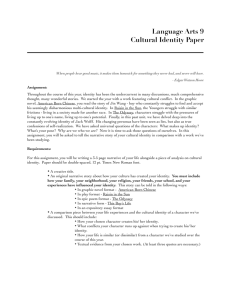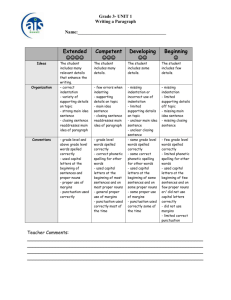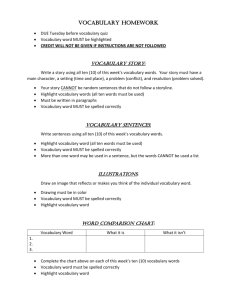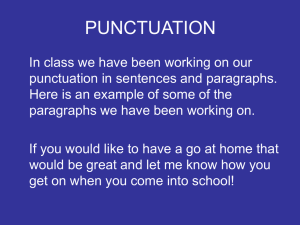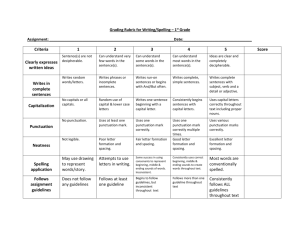Formal Tone On Thursday, 5/14/15, sixth grade writers evaluated
advertisement
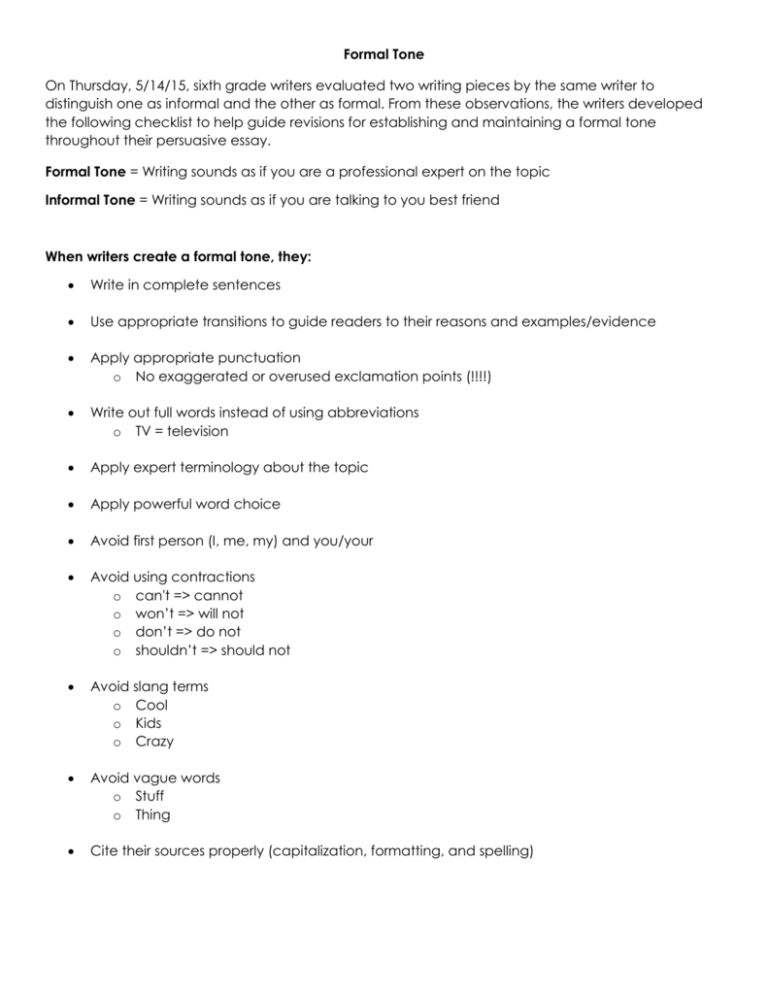
Formal Tone On Thursday, 5/14/15, sixth grade writers evaluated two writing pieces by the same writer to distinguish one as informal and the other as formal. From these observations, the writers developed the following checklist to help guide revisions for establishing and maintaining a formal tone throughout their persuasive essay. Formal Tone = Writing sounds as if you are a professional expert on the topic Informal Tone = Writing sounds as if you are talking to you best friend When writers create a formal tone, they: Write in complete sentences Use appropriate transitions to guide readers to their reasons and examples/evidence Apply appropriate punctuation o No exaggerated or overused exclamation points (!!!!) Write out full words instead of using abbreviations o TV = television Apply expert terminology about the topic Apply powerful word choice Avoid first person (I, me, my) and you/your Avoid using contractions o can't => cannot o won’t => will not o don’t => do not o shouldn’t => should not Avoid slang terms o Cool o Kids o Crazy Avoid vague words o Stuff o Thing Cite their sources properly (capitalization, formatting, and spelling) Name: _________________________________ Block: _____ Unit 6: Research-Based Persuasive Writing Editing for Publication Directions: Use the checklist below to help guide your editing work for capitalization, usage, punctuation, and spelling. Once you have completed your color-coded evaluation, consider making corrections to fix the errors within your writing piece. Editing Work Editing Lens With a pink marker, circle the first word of each sentence. Is the first word capitalized? With a pencil, circle any months, names of specific people, places, and organizations, and titles. Are they correctly capitalized? Are they formatted correctly? Newspaper or Magazine: italics Article: “Quotation Marks” Video: “Quotation Marks” Website: Name of site.com Is there an ending punctuation mark? Is the punctuation mark appropriate for the type of sentence made? With an orange pencil, box any commas used within your sentences. Are the commas used appropriately? With a red pen, circle any word or name of a person you are not 100% sure is spelled correctly. Watch out for homophones! Are they spelled correctly? Use a dictionary or dictionary.com to check! With a yellow highlighter, highlight any sentence that does not make sense. (Fragment/runon) Is a word missing in your sentence? Is it too long? Can it be separated into two strong sentences? Paragraph Check: Clear indent? 3-7 sentences? (Intro/Conclusion) 5-12 sentences? (Body) With a blue pen, underline the title of an article or website referenced by the writer. With a green pencil, box the end punctuation of each sentence. I B1 B2 B3 C
